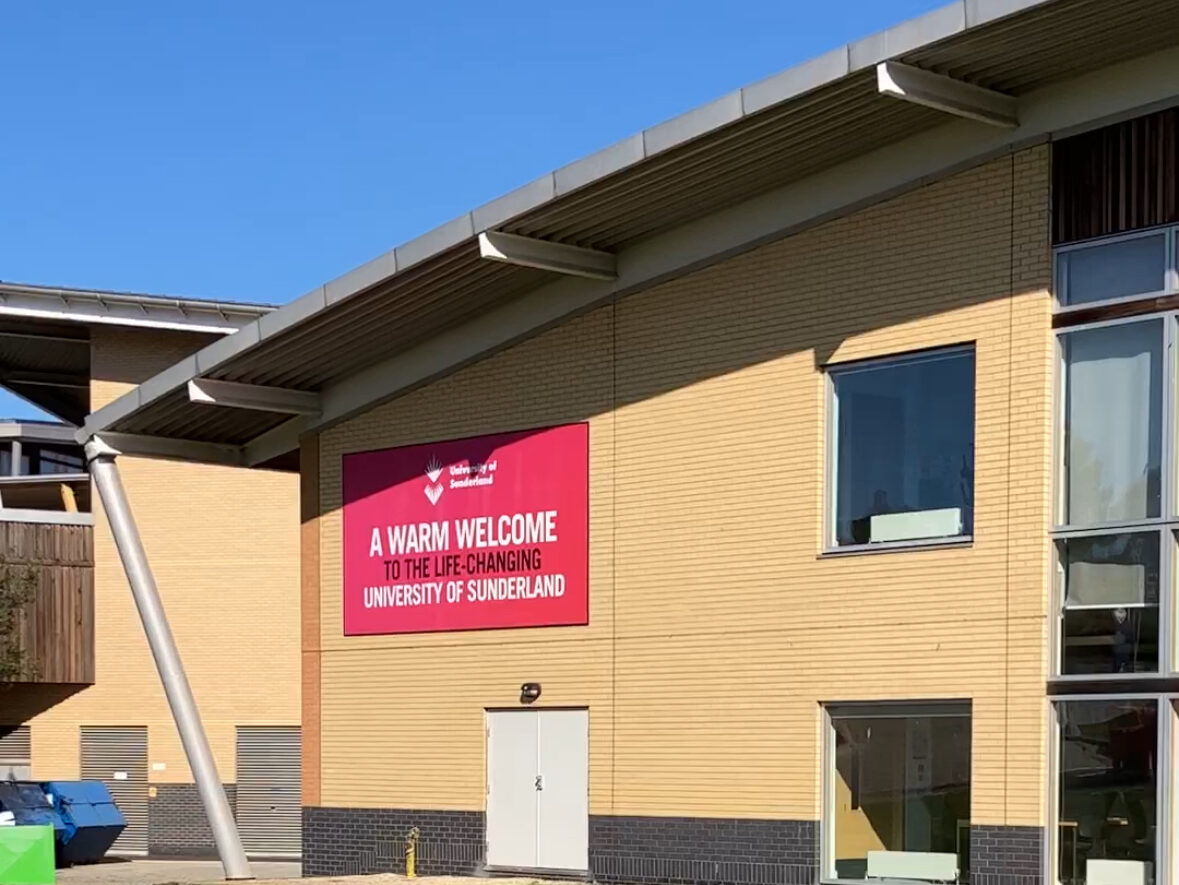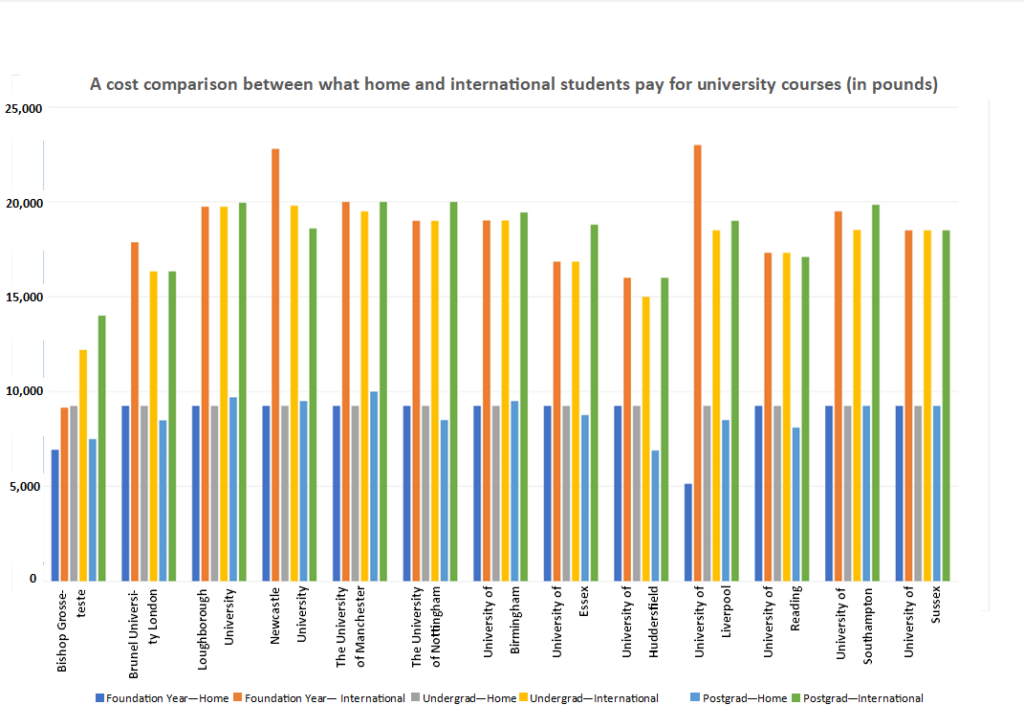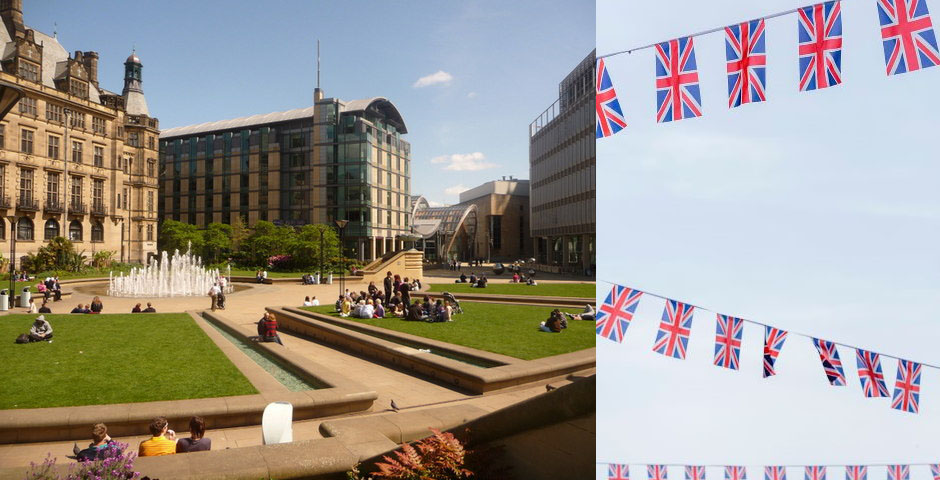A scheme giving graduates the chance to work in the UK has been a beacon of hope for 100,000s of people wanting to move to this country to study and build a better life for themselves, but campaigners say planned changes would end this.
The proposals by Home Secretary James Cleverly to the UK Graduate Visa route have sparked concerns among students and professionals alike, signalling potential repercussions on both personal and national levels.
Ahmed Abdelraouf, an Egyptian national currently residing in the UK on the Graduate Visa, embodies the hopes and challenges faced by many.
Reflecting on his journey, he acknowledges the pivotal role of the Graduate route in shaping his decisions regarding further education and career prospects.
For him, pursuing a postgraduate course became a clear choice with the assurance of extended stay and professional growth opportunities in the UK.
Since completing his studies he has continued to work at the University of Sunderland as an International Development Officer. His story underscores the personal stakes involved, as aspirations of building a life and career in a foreign land hang in the balance.
He said: “I was always hesitant if I should do a postgraduate course but after they introduced the graduate route visa, doing a masters course was a no-brainer.
“It meant that I could stay for a couple more years for work and gain experience that’ll help find a job in the UK for the future. I always wanted to work and live in the UK for as long as possible.”

When the route was launched in July 2021, the Government said that it wanted to attract and retain bright international students to contribute to society and the economy after their studies in an effort to help businesses recruit highly qualified talent from across the globe to drive the economy forwards.
However, recent developments suggest a shift in this narrative, raising questions about the prospects of those who have built their dreams around this pathway.
The Migration Advisory Committee (MAC) has since been commissioned to conduct a rapid review of the Graduate Route. The review aims to ensure that the Graduate Route operates in the best interests of the UK and takes steps to prevent abuse. The Home Secretary published a commissioning letter to the MAC on 12 March 2024.
The Prime Minister, Education Secretary, Secretary of State for Science, Innovation and Technology and Home Secretary have all claimed they remain committed to attracting talented students from around the world to study in the UK, and to championing the UK’s world leading higher education sector, but also want to ensure the Graduate route is not being abused.
Maria Jose Lourido, an Education Officer at Students Union Sheffield, echoed similar sentiments, emphasising the emotional attachments and personal sacrifices connected with the pursuit of higher education and subsequent plans to remain in the UK. Her testimony highlights the complex web of relationships and connections forged during her time in the country, underscoring the profound impact of potential policy changes on individuals’ lives and futures.
She said: “I really want to stay in the UK. I love the UK, I have friends and I have a partner that I’ve been in a relationship with for two and a half years, so if I must leave, I’ll be leaving an entire life behind.”

However, the proposed alterations to the Graduate Visa route threaten to disrupt these narratives of hope and continuity. As Mr Abdelraouf observes, the attraction of alternative destinations with more favourable visa policies, such as Australia, presents a substantial dilemma for international students weighing their options.
He said: “The trend that we’re seeing is a lot of students are not coming to the UK and instead choosing to go to a country that offers a better graduate route.
“For instance, Australia offers five years on their graduate visa. I understand Australia is more expensive than the UK, but people are more tempted to go there because they know that after studying, they can stay in the country for longer to work and make lives for themselves.”
The number of international students taking up postgraduate places at UK universities has already fallen sharply, according to commercial data that sparked further warnings about the financial health of the higher education sector.
Universities are already claiming to see a 30-40% drop in the number of international postgraduate and undergraduate applications in January 2024 compared with January last year.
Moreover, the proposed increase in the minimum salary requirement for Graduate Visa holders adds another layer of complexity to the equation. Ms Lourido points out the practical challenges faced by graduates in securing employment that meets the new criteria, particularly in sectors outside the corporate world.
She said of the proposed new minimum salary for graduate visas: “As a person going into the workplace, unless you’re working in corporate jobs, it’s impossible.
“So, it’s not as simple as international students are not allowed to stay in the country two years after graduation. It means that people must leave the country, leave everything, the lives that they’ve built in the country behind, but now they’re also having to go into exploitative jobs in order to be able to stay in the country.
“So, it’s a lose-lose for everyone involved.”

The repercussions of these policy changes extend beyond individual experiences to include broader societal and economic implications. The potential departure of international students and skilled professionals could deal a significant blow to the UK’s higher education sector and labour market, depriving it of diverse perspectives and expertise essential for innovation and growth.
Furthermore, as international students bring in significantly more funds per capita – with students on a visa often paying double that of their counterparts – the financial ramifications stemming from reduced international student enrolment could reverberate across universities and local communities, aggravating existing challenges in the wake of the pandemic.
Professor Andrea Nolan, International Convener of Universities Scotland and Principal and Vice-Chancellor of Edinburgh Napier University, said: “Any change to the Graduate Route must also ensure it remains an attractive and competitive offer to those who wish to study here.
“Universities are committed to the elimination of any visa abuse but with very little evidence of this happening, we need to reframe the narrative and reassure prospective international students that Scotland and the UK remains open, and a warm welcome awaits.”




